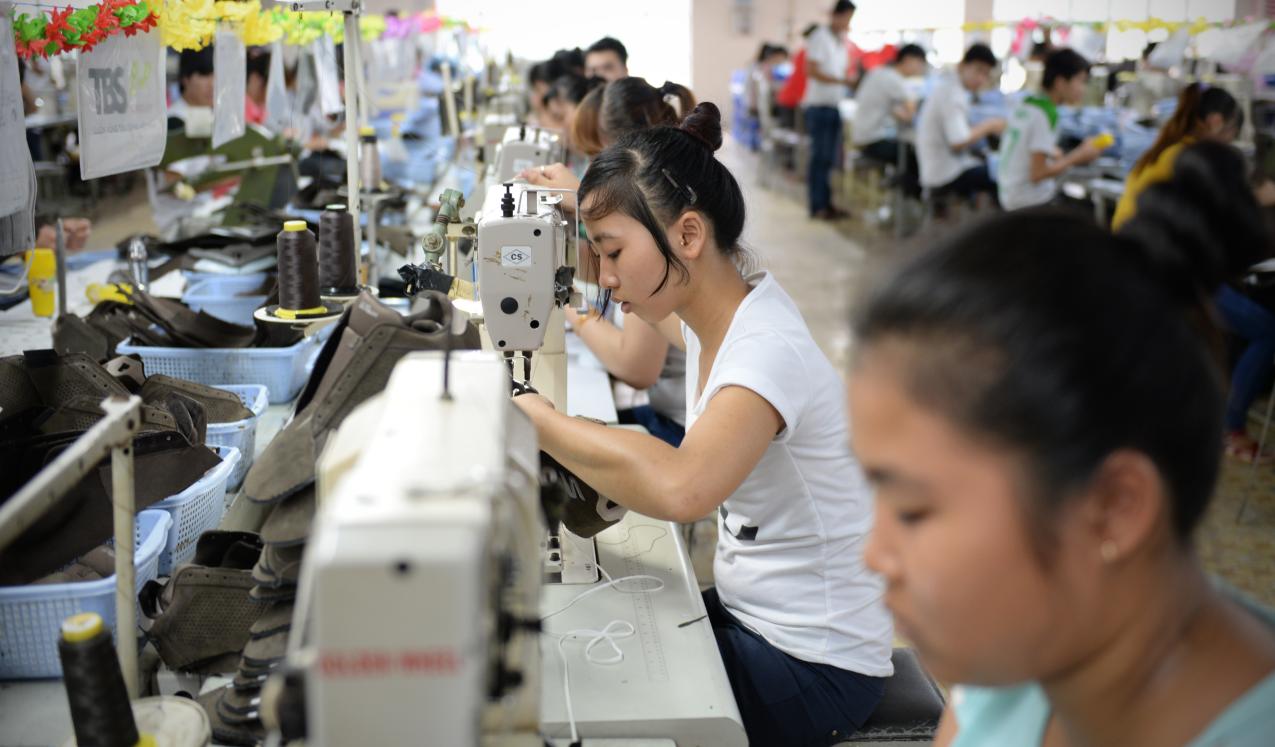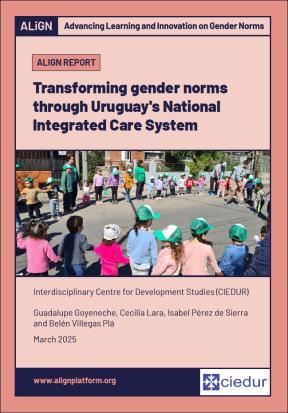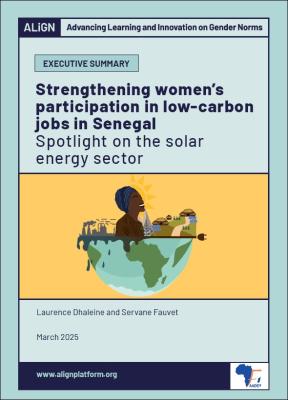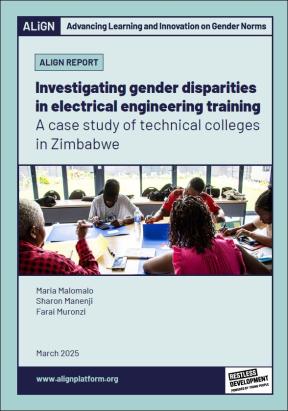
- Blog
- 8 avril 2020
There is an evolving awareness that gender norms—no matter how ingrained they seem in societal and economic structures—are changing constantly. And economic, political and health crises can be catalysts for these shifts. The COVID-19 pandemic, for example, requires billions of people to reallocate their time between work and home, and revisit the distribution of unpaid care work in households.
Gender norms can also be shifted deliberately and positively to support the role of women in the economy and the role of men at home. When women’s economic empowerment programmes are challenged by gender norms, as is already happening in the response to COVID-19, it should not be the end of the road. Instead, it is an opportunity for some positive thinking about how to shift gender norms.
Investing in Women (IW), an initiative of the Australian Government, has seized such opportunities. To promote women’s economic empowerment in South East Asia, IW has worked with coalitions of large employers to build greater gender equality in the workplace, and with impact investors to inject growth capital to small and medium enterprises that are owned and led by women.

Women-funded campaign promoting the
role of fathers in child care.
During our work in these areas, we have heard recurring questions about women’s roles in the workplace and how active they can be in business: “If women work to the same extent as men, who will take care of the family and the home?” “Can women and men do the same jobs or be equally effective leaders?” “Aren’t all roles meant to be gendered?”
We have also, however, come across women and men who think very differently, particularly urban millennials. They are at a point in their lives when they are confronted by the limitations imposed by traditional gender norms.
They are moving away from their parents to set up their own households and deciding whether to have children and, if so, how to raise them. Couples know that they both need to be earning if they want to sustain a young family. All of these considerations push them to take on different roles at work and in the home.
There are signs that changes in the way urban millennials are living make them the early adopters of more progressive gender norms that enable women to participate more in the economy and men to participate more at home. If we accept that norm changes begin with innovations that spread across a critical mass, this raises an important question: could urban millennials be the key to shifting gender norms?
In 2018, IW commissioned an online Social Norms, Attitudes and Practice Survey (SNAPS) to understand the perceptions and practices of urban millennials around the sharing of housework, women’s economic role and parental leave in Indonesia, the Philippines and Viet Nam. The survey was completed by 6,000 urban millennials, consisting of 1,000 women and 1,000 men in each country aged 18 to 40. One of the results is pictured below:
The research uncovered attitudes among urban millennials that differ markedly from those generally considered to be the broad social norm. Despite persistent gender inequalities in all three countries, the survey data reveal the emergence of positive gender perceptions within this group around women and work, men and unpaid care work and job segregation.
Most of the women surveyed—67% in Indonesia and 58% in the Philippines—identified economic independence as one of their main reasons for working, with almost identical proportions for men, at 65% and 58% respectively. In Viet Nam, women were far more likely than men to say that they were working to be economically independent: 74% compared with 63% for men.
These statistics counter the narrative often voiced in these countries that “a good woman should sacrifice her career to care for the family.” They also raise important questions when set alongside official employment data in some countries that show low labour-force participation of women compared to men.
Women are also under-represented in senior management—not only in the countries surveyed but globally. Some of the reasons cited most often are that women are not as confident as men, or that they are very aware of their responsibilities at home, which prevents them from pursuing their careers. But when IW asked urban millennials whether they have ambitions for senior positions, women were just as ambitious as men: between 70% and 80% of women said yes.

Women-funded campaign promoting the
role of fathers in domestic work.
But it’s not just women who are changing their mindsets about their roles. When asked about sharing tasks at home, around half of the men and a third of the women surveyed in each country said they share chores at home equally with their spouses. While acknowledging the limitations of self-reported contributions, the data indicate a departure from the way housework has been distributed traditionally.
Building on the SNAPS data, IW is exploring whether urban millennials could also—as already adopters—influence more individuals to act on more progressive gender norms. Since 2018, we have been working with local organisations in Indonesia, the Philippines and Viet Nam to showcase positive examples that challenge traditional gender norms.
In Indonesia, for example, the #KitaMulaiSekarang or #LetsStartNow campaign (see video below) by Aliansi Laki-Laki Baru and Yayasan Pulih has highlighted how both men and women benefit when unpaid caring work is shared. The campaign has reached more than 1.7 million people online in less than a year and generated widespread social media conversations, as seen in more than 200,000 likes, comments or shares.
Across all three countries, the campaigns supported by IW have so far reached more than 18 million people online, and we have seen encouraging pockets of change. For example, individuals ready for change have been emboldened by seeing and hearing the stories of women and men who practice progressive gender norms.
The campaigns have reinforced the positive behaviour of those who already have more equal perceptions of women and men. For some, the campaigns have confirmed that they are doing the right thing. Others have used the campaign platforms to engage their families, peers and others, becoming champions for gender equality in the process.
Encouraged by such changes, IW is embarking on new partnerships in 2020 for campaigns that that will aim to shift gender norms among urban millennials and businesses so that they become more supportive of gender equality and women’s economic empowerment.
It may not be possible to shift gender norms completely in a short timeframe, but trends, disruptions and crises such as the COVID-19 outbreak can be opportunities for us to recalibrate our gendered expectations. IW hopes to build a community that advocates for positive shifts in gender norms throughout these changing environments—a community that is led by urban millennials.
Download a copy of Investing in Women’s report on the results of its SNAP Survey: Attitudes to equality: Understanding social norms, perceptions and practices around gender in Indonesia, the Philippines and Vietnam. To receive updates on Investing in Women’s work, subscribe to IW News.
About the author - Kim Patria

- Tags:
- Economic empowerment
- Countries / Regions:
- South-East Asia, Global
Related resources
Report
26 mars 2025

Report
20 mars 2025

Report
20 mars 2025
